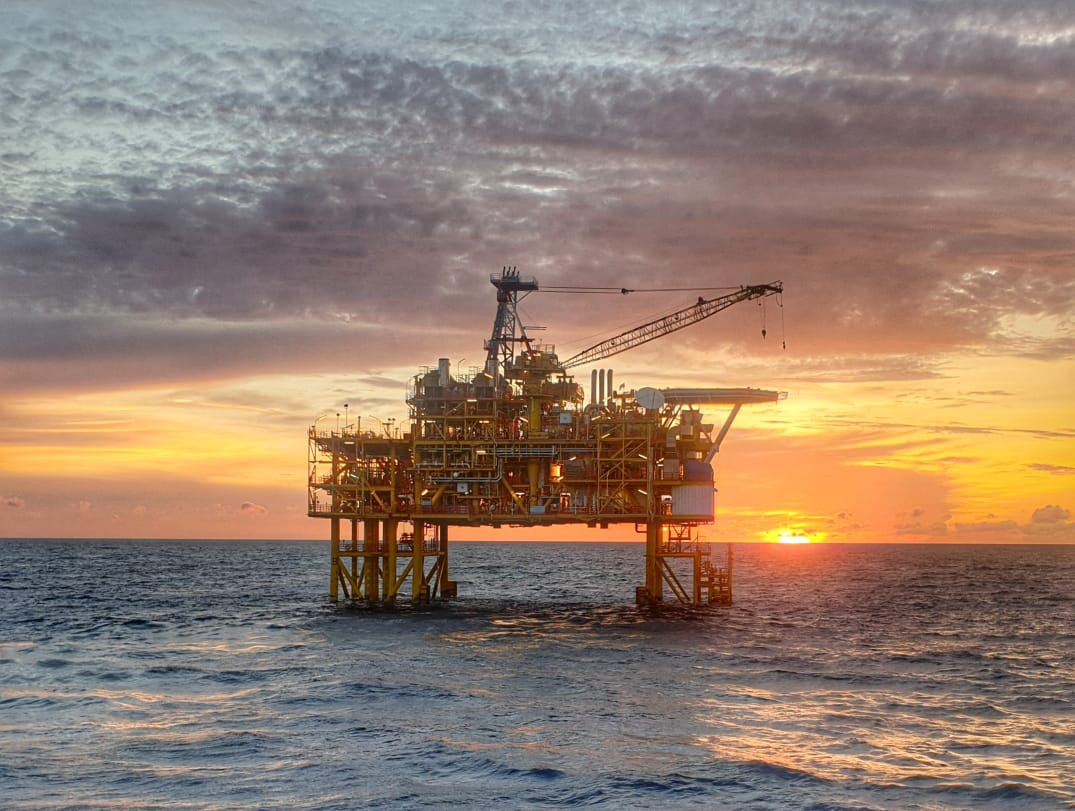Popular Reads
Top Results
Can't find what you're looking for?
View all search resultsPopular Reads
Top Results
Can't find what you're looking for?
View all search resultsGovt’s flexible oil and gas contract choice ‘positive’ for investment: Analyst
“One benefit of cost recovery is the ability to offer some reward for risks associated with frontier developments,” said Lionel Sumner, research analyst at Wood Mackenzie, in a statement on Sept. 17.
Change text size
Gift Premium Articles
to Anyone
T
he government’s decision to allow oil and gas producers to choose production sharing contracts (PSCs) is a positive step forward for investors in the upstream industry, compared with the less favorable gas ceiling policy, according to energy consultancy Wood Mackenzie.
The Energy and Mineral Resources Ministry ruled on July 15 that all producers may choose between either using a gross split-type PSC or a cost recovery-type PSC. The ruling revokes a 2017 regulation that mandated producers to use the gross split.
In a cost recovery-based PSC, the government reimburses companies for upstream-related costs in exchange for a higher share – up to 85 percent – of each company’s earnings from exploiting domestic oil and gas blocks.
Meanwhile, in the gross split scheme, companies bear upstream costs themselves, but the government receives a smaller cut of the revenue – up to 57 percent – determined in advance.
“One benefit of cost recovery is the ability to offer some reward for risks associated with frontier developments,” said Lionel Sumner, research analyst at Wood Mackenzie, in a statement on Sept. 17.
“This is important as it could encourage exploration to mitigate Indonesia’s declining production.”
Attracting upstream investment is key to realizing Indonesia’s long-term goal of raising oil and gas output and reducing the country’s trade deficit in the sector.
Making PSCs flexible is seen as the ministry's response to slumping investment amid the economic slowdown. Ambiguities surrounding the calculation of government-company shares under the gross split scheme “have proven unpopular, particularly in the current low oil price environment,” reads Wood Mackenzie’s statement.
Brent, a global oil price benchmark, dipped to a low of US$19.33 per barrel in mid-May but had recovered to $43 per barrel as of Friday. Analysts expect prices to remain below $50 per barrel this year.
Due to the global economic slowdown, upstream oil and gas investment in Indonesia is forecast to slip by 14.4 percent to $11.8 billion this year, according to the Upstream Oil and Gas Special Regulatory Taskforce (SKK Migas), a development that is expected to affect long-term supply levels.
Read also: Indonesia grants oil and gas companies flexibility over production sharing contracts
On the other hand, the ministry’s gas ceiling policy, combined with bureaucratic headwinds, was seen “as deterrents for international investors,” reads the Wood Mackenzie statement.
In April, the ministry guaranteed that certain industrial end-users would not be charged more than $6 per million British thermal units (mmbtu) of natural gas, below the $8 per mmbtu market average, for the next four years.
While President Joko “Jokowi” Widodo has stated that he wishes to boost Indonesia’s industrial sector, which contributes one of the largest proportions of gross domestic product (GDP), the price ceiling has unsettled oil and gas investors.
A case in point is Spain’s Repsol, which has hit a snag developing the Sakakemang Block as the company cannot reach economical scale at $6 per mmbtu, according to the Upstream Oil and Gas Special Regulatory Task Force (SKK Migas).
The Sakakemang Block holds Indonesia’s largest gas find in almost two decades.
“We, from the commercial division, have intervened to determine whether or not this can proceed,” said SKK Migas deputy for finance and monetization Arief Handoko on Aug. 6.
Read also: 197 companies secure cheap gas prices, contracts to be signed in May
To attract investment, the government has issued other incentives such as easing taxes for liquefied natural gas (LNG) and pushing back deadlines to pay annual abandonment and site restoration (ASR) fees.
The government initially planned to auction 10 blocks this year but oil and gas companies stepped back after oil prices collapsed, forcing the companies to cut capital spending by around 30 percent, according to the energy ministry’s acting oil and gas director general, Ego Syahrial on Aug. 5.
Ego said his office would delay all 10 block auctions slated for 2020 until the fourth quarter “with the hope that oil prices will be back to normal by then.”










